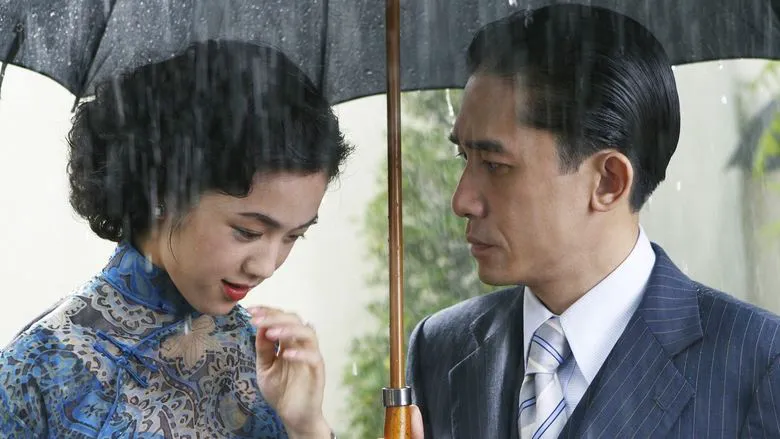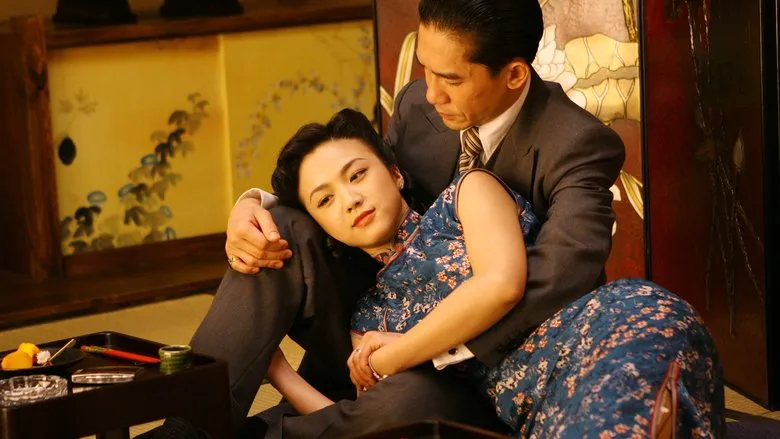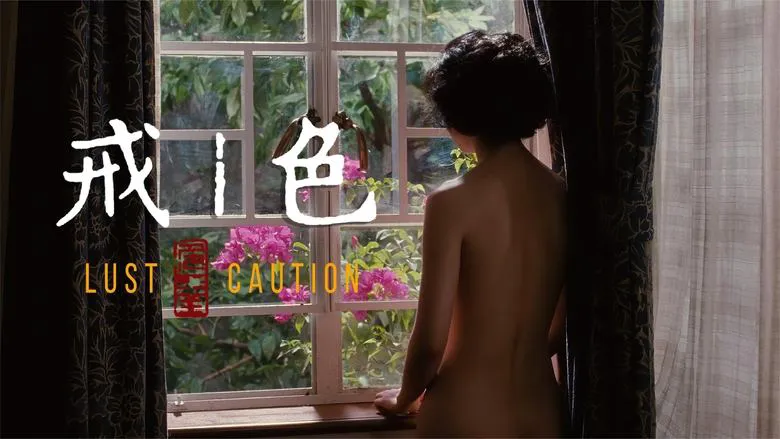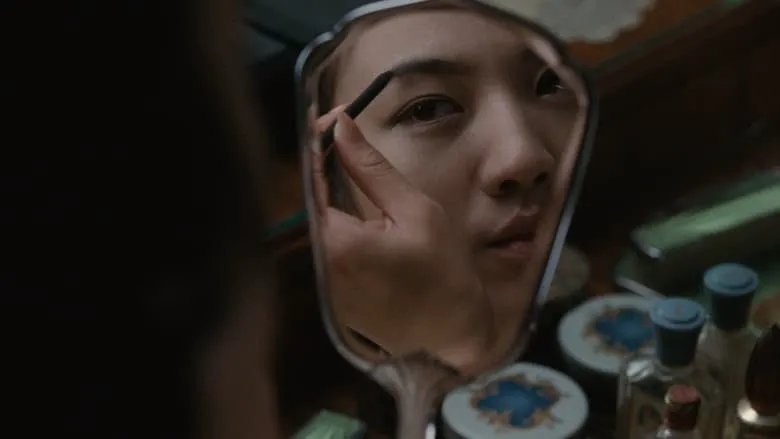Ang Lee’s “Lust, Caution”: A Deep Dive into Desire and Deception
Ang Lee’s “Lust, Caution,” the grand prize winner at the Venice Film Festival, premiered in Russia on November 1st. This film embodies all the hallmarks of a major cinematic event: an epic scope, a nearly three-hour runtime, a blend of politics and eroticism, suspense, melodrama, and even touches of the explicit.

Set in 1941, against the backdrop of Japanese-occupied China, the story follows a seemingly innocent Shanghai lady, an activist within the Resistance, as she attempts to ensnare a collaborator in a deadly trap. However, her mission, reminiscent of a youthful rebellion, falters the moment she becomes entangled with him in the bedroom. Similar to how Lee subverted traditional Western tropes in “Brokeback Mountain” (2005) by exploring unconventional relationships, here he redefines the femme fatale. She transforms from a seductress into a passive victim, manipulated by the homme fatal, portrayed by Tony Leung, the star of “In the Mood for Love” (2000).
Lee skillfully navigates cultural clichés, juxtaposing conservative retro aesthetics with explicit sex scenes, a rarity in Chinese cinema, and blending “social realism” with raw naturalism. Yet, despite the director’s boldness, “Lust, Caution” subtly harkens back to the traditional cinema of the 20th century, offering a comprehensive exploration of primal instincts as a driving force in history.
Ang Lee on Returning to His Roots and Exploring Taboo Themes

You’ve made a film in Chinese for the first time in many years. Taiwan was also involved in the production of “Lust, Caution.” How important was it for you to return to your roots?
I became captivated by this story a long time ago, when I first read Eileen Chang’s short story. It stayed with me, and the desire to adapt it for the screen was very strong. Filming in China was difficult for personal, internal reasons; I have many connections to these lands. But the material itself presented an even greater challenge: the Japanese occupation of China during World War II. Firstly, it’s a sensitive and taboo subject for the Chinese. It has never been addressed in cinema. Secondly, it’s a bygone era that still stirs emotions. People behaved differently then, communicated differently, and existed differently in society. During filming, I even had to remind the actors what shyness was, a quality that is practically extinct today. Technically, working in China is more difficult. Producing one Chinese film is equivalent to filming three English-language films for me. But I would like the Chinese film industry to expand and improve; it has enormous potential. That’s one of the reasons why I wanted to make a Chinese film.
What exactly struck you so much in Eileen Chang’s story?
It’s a very multi-layered work. It evoked fear in me, and it was fear that drove me during filming. On the one hand, it’s a story about the essence of patriotism, the strongest Chinese ideology. Nothing else unites us so much today. Even Confucianism no longer works. Patriotism is the most powerful thing in Chinese culture. Of course, it is especially pronounced during wars. On the other hand, all this patriotic madness is described in the story through the prism of female sexuality, which is taboo in Chinese culture. What does a woman get from sex? This question is forbidden for the Chinese. We know nothing about it. Even women themselves don’t ask it. And suddenly Eileen Chang, a famous writer who is loved and known in China, writes about it! Working with such material is much scarier and riskier than telling a story about American gay cowboys.
There is another aspect. I largely identify with the main character of “Lust, Caution.” Through play and pretense, she discovers the truth about herself. The same thing happens to me when I make films. I am also an “insider” who infiltrates foreign cultures and thus gets closer to myself, the real me.
Do you believe that through fiction and play, one can grasp reality and learn the truth?
Yes, that’s why we read books, go to the theater, and watch movies. That’s the essence of art. Through immersion in a conditional, fictional world, in an illusion, even a cruel and terrible one, we get a chance to learn the truth, but we don’t pay for that truth as we would have to pay in real life. In this, I see the advantage of art over life. Whatever happens on the screen, on the pages of a book, or on the stage, no matter how extreme the experience the viewer encounters, they still remain in a safe zone.
And what truth does “Lust, Caution” reveal to us?
For me, it’s a war between a man and a woman, taking the form of a terrible mutual occupation. And the historical Japanese occupation of China is a symbol, a metaphor for these relationships. And it’s impossible to say who is the occupier and who is the occupied, who is the tormentor and who is the victim. In the end, the heroine betrays China and fails the operation because of a diamond that the collaborator gives her, taking this gift as a sign of love. And he escapes like a rabbit!

You are one of the most versatile modern directors, overcoming various national and cultural barriers with amazing ease. And yet, which culture do you feel closest to at the moment? Where do you feel at home?
I can’t say for sure. My parents, brothers, and sisters live in Taiwan. When I come to visit them, I feel at home, but at the same time, I have the feeling that I am a guest there. And yet, in everyday life, I feel closest to New York, where I spend most of my time. My family lives there, my wife and children. But in American culture, I still feel like an outsider. To no lesser extent, my home is my films. It’s the only place where I’m not torn apart by contradictions.
The Challenges of Filming Intimacy and Exploring Universal Themes
How did you film the erotic scenes? They are striking in their combination of frankness and drama.
These are the most difficult and painful episodes I have ever filmed. As a director, I didn’t get any pleasure from them. On the contrary, I was squeezed like a lemon. I will only feel satisfaction if they make the viewer think about the nature and drama of human relationships. Words cannot convey what can be expressed in the language of the body. That’s the effect I was aiming for. I can’t even imagine what people who make real porn films experience. How do they withstand such tension, not so much physical as psychological? In “Lust, Caution,” these episodes raise the question of how far the characters (and actors) are willing to go in their own game, in their own pretense.

Sex in cinema is a real test for actors, a test of their endurance. My actors were required to give their all. In my opinion, these scenes show the limit of acting. I needed to prepare both myself and the viewer for them, which is why they appear in the last third of the film, after almost two hours have already passed. These moments are climactic; they could not have happened earlier, otherwise the psychological tension would have been lost. And there could not have been many of them, otherwise it would have resembled the structure of a porn film. Sex for me is not equivalent to love, but it is close to it. In the relationship between two people, there is nothing more intimate than sexual contact. It is a catalyzing force for the feeling of love. But this force can also have a destructive effect.
You are constantly making different films. How would you formulate the theme that unites your films?
I have always been concerned with the question of human sexuality, how it affects the inner world. I explore this topic from different angles. It seems to me that all my films somehow touch on the conflict between social conventions and human nature, their will to freedom. This is the eternal contradiction between the personal and the public, between the natural desire to be oneself and the imposed need to portray someone else. This is present in both “Brokeback Mountain” and “Lust, Caution.”
Although these films are in many ways opposite. “Brokeback Mountain” (2005) is a film about loss and longing for what is lost. There is romance in it. For me, it is an image of a lost paradise, which is impossible to return to and which gradually becomes an absolute illusion.
And what happens in “Lust, Caution” is hell, from which it is impossible to escape.